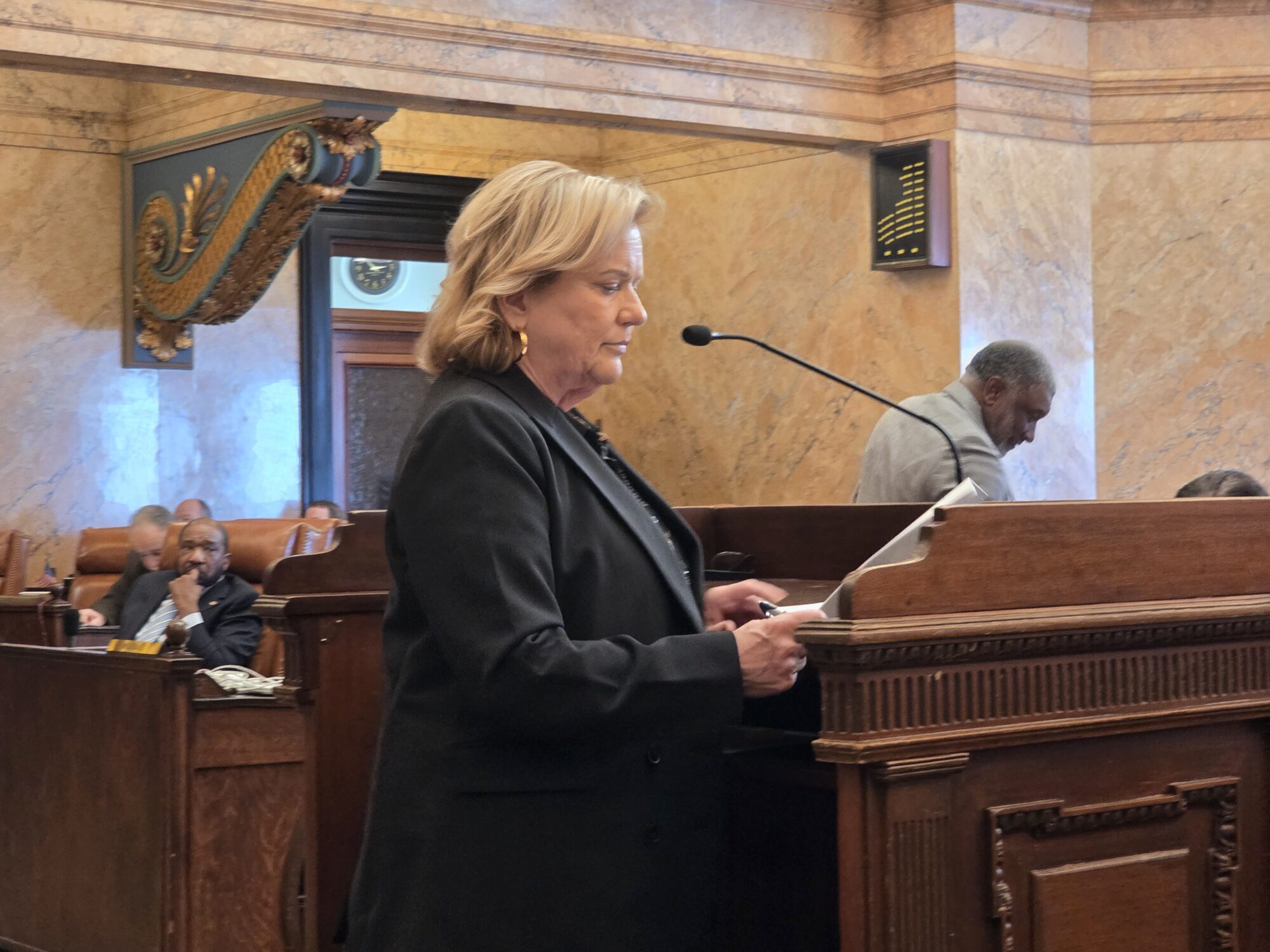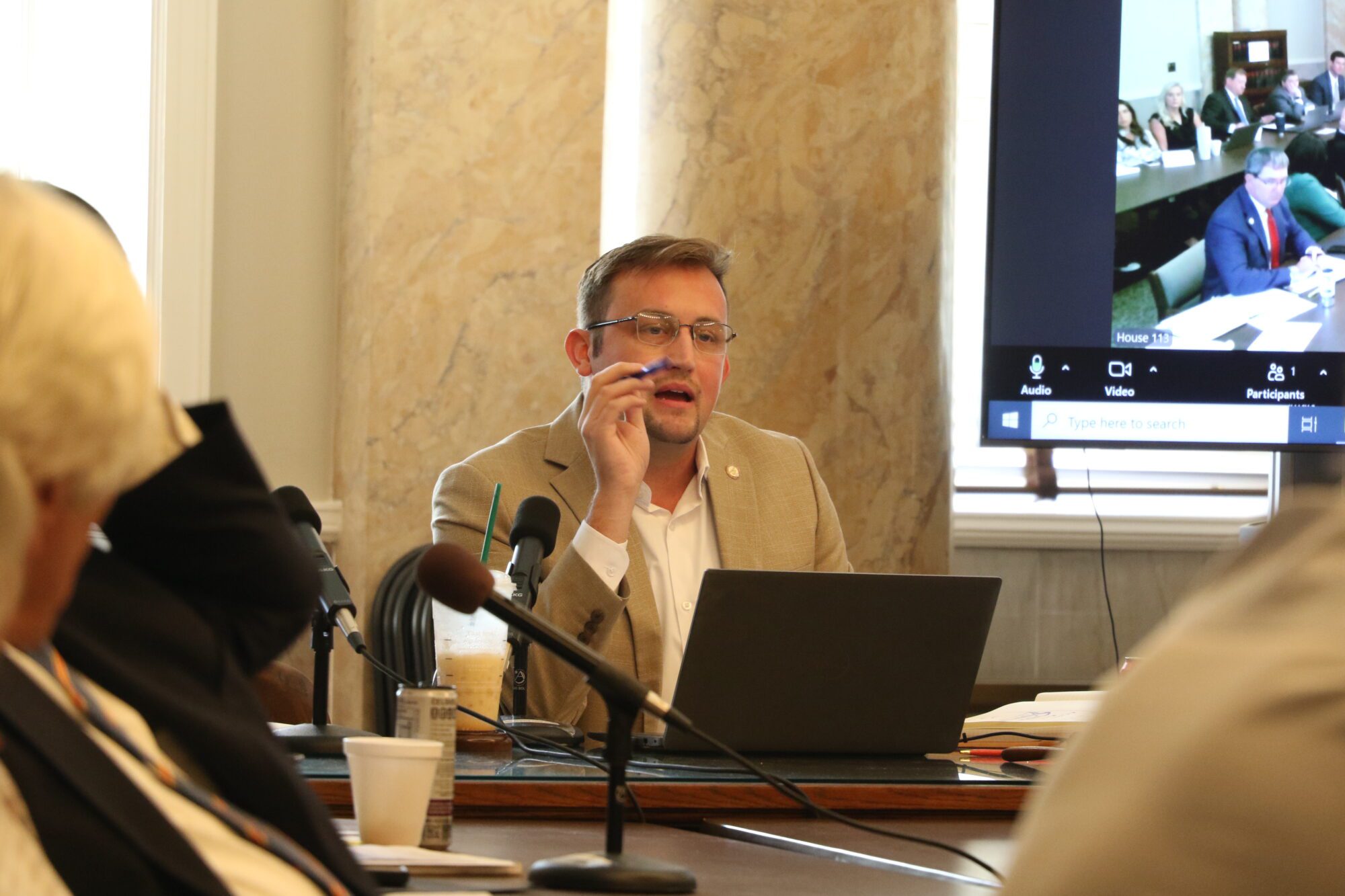
U.S. District Judge Henry Wingate smiles on Aug. 19, 2022, in Jackson, Miss. Wingate ruled Thursday, June 1, 2023, that the Mississippi chief justice cannot be a defendant in a lawsuit that challenges a state law dealing with appointed judges. (AP Photo/Rogelio V. Solis, File)
- Supporters of the law say decisions at public schools and universities should be based on merit, not race or sexual orientation. The ACLU and the Mississippi Center for Justice claim the new law violates the Constitution.
Enforcement of the anti-DEI law passed by the Mississippi Legislature this last session has been temporarily blocked by a federal judge.
The decision was made Sunday by U.S. District Judge Henry Wingate in relation to a lawsuit filed by the American Civil Liberties Union (ACLU) of Mississippi and the Mississippi Center for Justice in June.
READ MORE: ACLU files suit against Mississippi’s new anti-DEI law
The lawsuit alleges that HB 1193, which was passed during the 2025 legislative session, violates the 1st and 14th Amendments of the Constitution.
A copy of the court’s order states that a temporary restraining order is “an emergency, short-term measure designed to preserve the status quo until a comprehensive hearing can be held.”
Initially, the court set a date of this Wednesday, July 23, to hold a preliminary injunction hearing. However, Joshua Tom, Legal Director for the ACLU of Mississippi, told Magnolia Tribune that an extension was requested and approved on Monday.
“Given how short that turnaround was to prepare for a hearing we asked the court today to postpone the hearing. The court agreed and set the preliminary injunction hearing for August 5,” Tom explained.
Temporary restraining orders typically last 14 days but can be extended another 14 days if the court deems it necessary. Tom expects the court to add that extension since August 5 is more than two weeks away.
The new law, as it was described by lawmakers, prevents public K-12 and higher education institutions from utilizing diversity, equity and inclusion (DEI) practices when making decisions concerning school employment, academic opportunities, and student engagement. Such decisions are to be based on an individual’s merit and qualifications rather than a person’s race, color, sexual orientation, or gender. The law passed through both bodies in the State Capitol and then received the governor’s signature in April.
“Ultimately we want to have a ruling on the merits by the court that the provisions that we challenged in the lawsuit are unconstitutional,” Tom added. “Either because they violate the First Amendment, rights of students and educators, and or because they are unconstitutionally vague.”
According to the court order, the plaintiffs allege that enforcement of the law has already resulted in direct harm to instruction in the classroom.
“Faculty members attest that the law has chilled their classroom discussions and curtailed their ability to engage with students on matters of race, gender, and identity,” the order reads. “Students and student groups claim that their programming and expressive activities have been disrupted or canceled in anticipation of institutional discipline.”
Three public institutions – Jackson State University, Alcorn State University and Hinds Community College – have discontinued their DEI initiatives and programming, the plaintiffs outline.
Tom said this case is important because no state or federal government should be able to impose its preferred viewpoints on the public, including as it relates to education.
“It should not be able to censor opposing viewpoints,” Tom elaborated. “And that is part of why the plaintiffs in this case have sued Mississippi to get it stopped.”
A copy of the court order is below.











